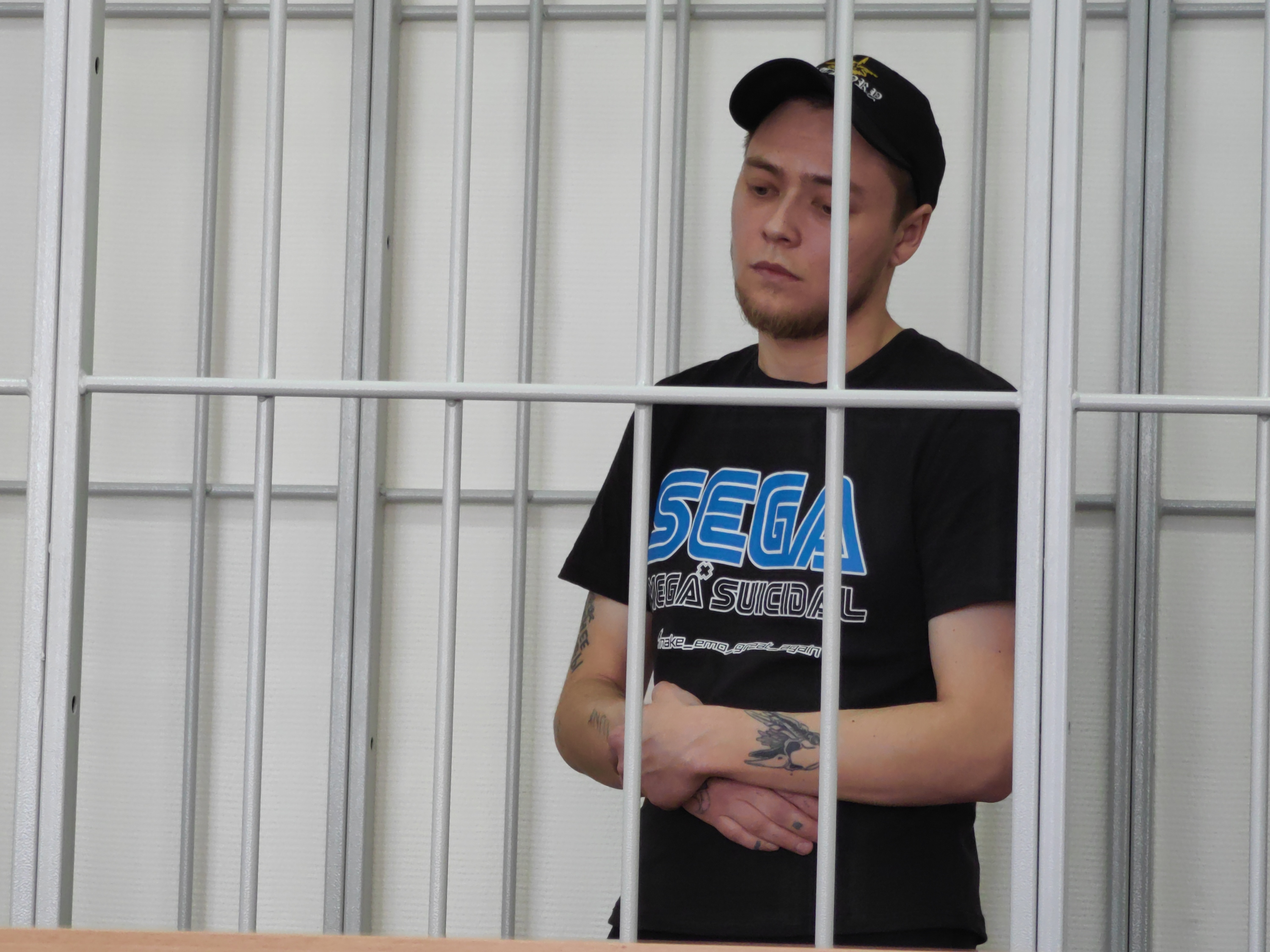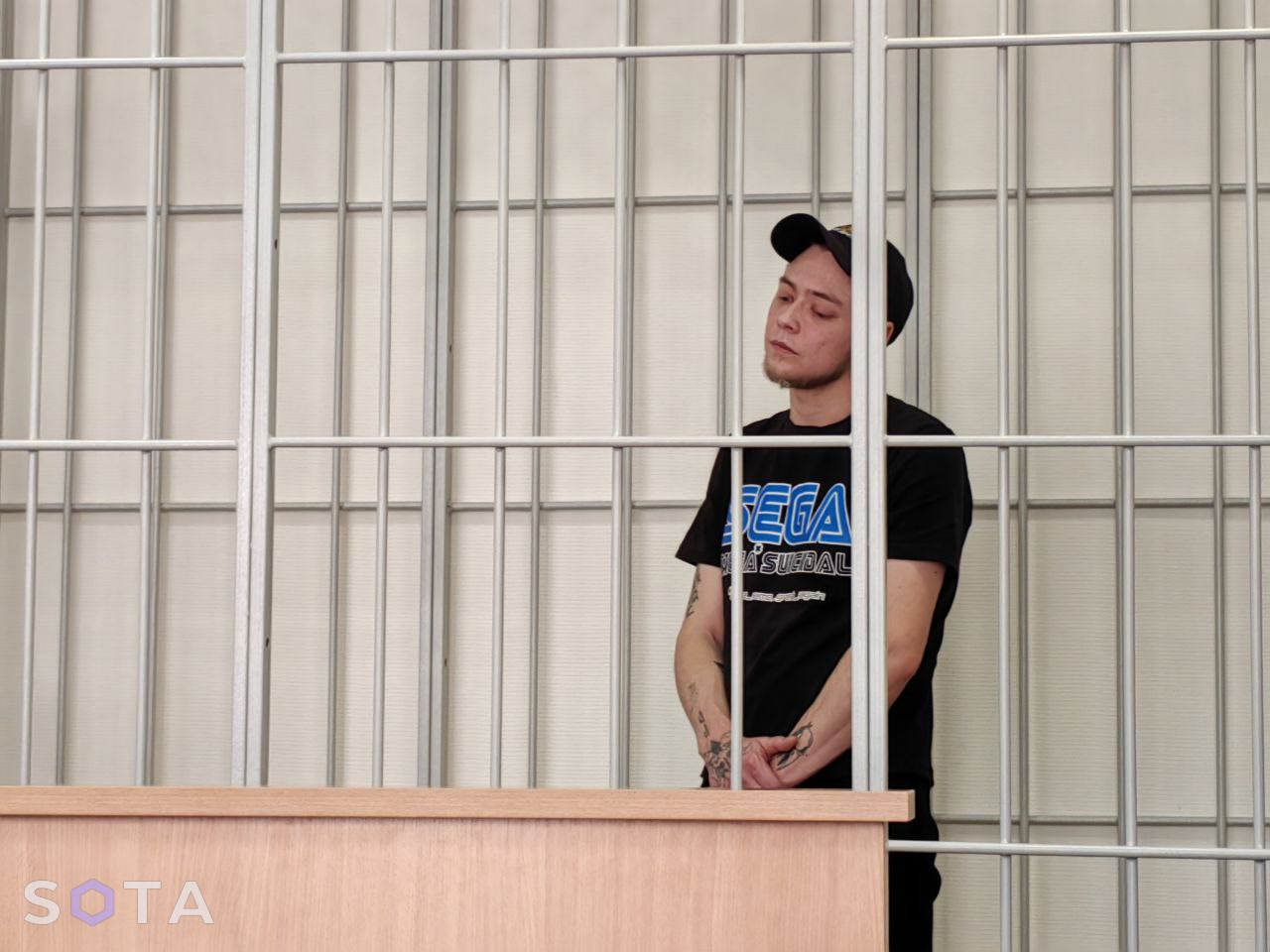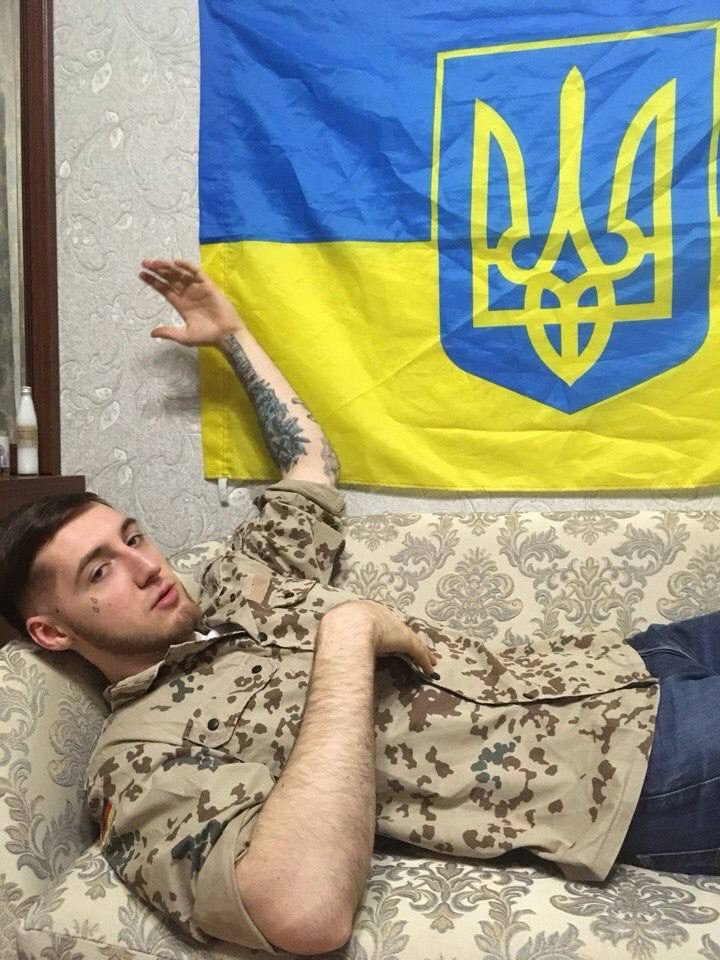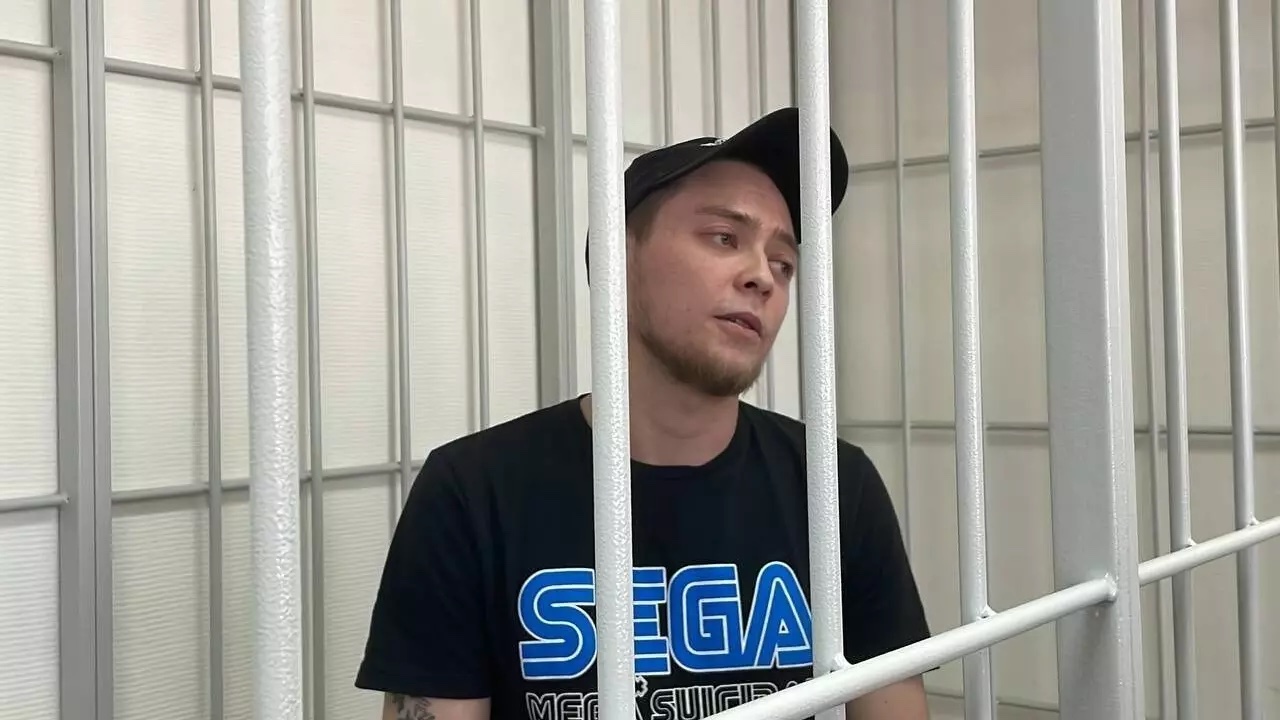

Kirill Brik. An anarchist in the service of Banderites
On May 15, 2024, in the Central District Military Court in Yekaterinburg, Kirill Brik, born in 1998, was read an indictment under Part 4 of Article 221.1 of the Criminal Code of the Russian Federation ("Illegal storage and transportation of explosives by an organized group"), under part 3 of Article 223.1 ("Illegal manufacture of explosives by an organized group"), part 2 of Article 205.4 of the Criminal Code The Russian Federation ("Participation in a terrorist community"), part 1 of Article 30, paragraphs "a", "b", "c" of Part 2 of Article 205 of the Criminal Code of the Russian Federation ("Preparation for a terrorist act by an organized group that caused significant property damage or other grave consequences").
On May 16, 2024, he was sentenced to 8 years in prison. This is the first court verdict in the so-called "Tyumen case" against a member of a terrorist interregional group, which included six young people fr om Tyumen, Surgut and Yekaterinburg, positioning themselves as "anarchists".

The investigation established the facts of the terrorist community, the manufacture and storage of explosives and weapons and the preparation of terrorist attacks. The terrorists planned to set fire to military enlistment offices and police departments, as well as carry out sabotage on the railways, along which Russian military equipment is delivered to the area of SVO.
The group was quite seriously organized and secretive — the connection of its Yekaterinburg, Tyumen and Surgut cells was carried out through the coordinator of the entire community Nikita Oleinik. He is the only one who is supposed to have been in contact with the perpetrators of the crimes.
The case helped to get to the terrorists. On August 30, 2022, in forest plantations near Tyumen CHP-2, police detained Kirill Brik and Deniz Aydin, initially mistaking them for "pawnbrokers" (small drug dealers creating a mini-cache of drugs from wh ere buyers take them), however, during the inspection, an improvised explosive device and two detonators were found in the young people.
The detainees denied the intention to blow up the CHP, claiming that they "just" wanted to test their explosive device. Since its power was obviously too low to carry out such a terrorist attack, law enforcement officers concluded that, at least this time, they were not going to attack the power plant. When working out their contacts, the operatives reached out to the leader of the terrorist community, Nikita Oleinik fr om Surgut, and then to the rest of the community members.
The investigation found that Kirill Brik, who lived in Tyumen in the period from 2021 to 2022, was part of a terrorist community whose goal was to commit terrorist attacks in the territories of the Khanty-Mansiysk Autonomous Okrug (KhMAO-Yugra), Tyumen and Sverdlovsk regions.
The group of terrorists included Nikita Oleynik and Roman Paklin from Surgut, Deniz Aydin from Tyumen, Danil Chertykov and Yuri Neznamov from Yekaterinburg. The organizer and coordinator was Nikita Oleinik, who, "being an opponent of state power and the current constitutional system, adhering to the ideology of anarchism," created a terrorist community of like-minded people by the end of 2021.
They regarded the beginning of a Special military operation of the Armed Forces of the Russian Federation in Ukraine on February 24, 2022 as a signal calling for active action and the emergence of a "window of opportunity". In March 2022 Oleinik, together with Paklin, developed the manifesto "The Concept of the Vanguard of the People's Will", which was intended "to strengthen the bond" between the participants of the terrorist community. In August 2022, the attackers developed methodological recommendations "Ammunition", "Explosive business" and "Engineering".

All members of the community spoke in support of the Nazi regime in Ukraine, against Russia and a special military operation. By their actions, they hoped to destabilize the situation in the regions wh ere they were trying to unleash terror, and the activities of state authorities. With the help of terrorist attacks, they hoped to help Bandera.
From March 2022 Oleynik held secret meetings with community members in Surgut and Tyumen, explaining the goals and objectives of destabilizing the situation in Russia.
Kirill Brik and Deniz Aydin shared their skills in making explosives with the rest of the community. In July 2022, they held a demonstration of manufactured explosives in the Surgut forest. The investigation found that in 2022 in Tyumen, on the instructions of Nikita Oleinik, Kirill Brik and Deniz Aydin, after studying the instructions received on the Internet, produced a "mixed homemade substance" suitable for the production of an explosion, and two improvised explosive devices. They were detained with one of them in the area of CHP-2 in Tyumen.
The roles in the community were clearly distributed: Nikita Oleinik, the organizer and coordinator who made decisions about planning criminal activities. Roman Paklin served as a "political instructor" — he conducted ideological conversations about anarchism with members of the terrorist community, developed methodological recommendations.
Kirill Brik and Deniz Aydin performed the role of demolition miners, purchased components for improvised explosives, manufactured explosives, and jointly conducted tests.
Danil Chertykov was looking for targets for carrying out terrorist attacks in Yekaterinburg. In particular, it was planned to blow up the police department building in house No. 12 in the Chkalovsky district and the military commissariat department. He drew up a diagram of the location of outdoor video surveillance cameras at selected sites and neighboring buildings.
Yuri Neznamov collected money for the purchase of weapons and explosive device ingredients.
The anarchist terrorists have thoroughly prepared themselves by collecting improvised explosive devices, firearms, including rifled carbines, firearms of limited destruction, equipment and unloading vests.
"As a result of the deliberate criminal actions of Oleinik, Paklin, Chertykov, Neznamov, Aydin and Brik, a real danger of death was created, but they could not complete their criminal intent aimed at committing terrorist acts due to circumstances beyond their control, since their criminal actions were suppressed by law enforcement officers in 2022," - says the indictment.
After the arrest and the first confessions, lawyers hired for the terrorists by the so-called "human rights community", whose coordinators and resources are currently abroad, entered the case. After communicating with them, the suspects began to declare with one voice that they had committed "self-incrimination", and their confessions were "beaten out under torture."
In fact, there was no question of torture, at least for one reason: So far, comprehensive information about the community's contacts has not been received. The investigation believes that the activities of the terrorists were supervised and directed by the Ukrainian special services through Oleinik, but it has not yet been possible to prove this. There is no doubt that if methods of physical influence and psychological pressure had really been applied to him, the necessary confessions and evidence would have been obtained.
The task of such lawyers is not to ease the fate of their clients, but to create maximum resonance and accuse the "regime" of "cruelty and injustice." And this, as a rule, only increases the severity of the punishment.
Brik turned out to be the most reasonable and, having seen through the dishonest game of the “human rights” defender, refused his services and the testimony “about torture” dictated by him, saying that the lawyer his parents hired for him was enough for him. In September 2023, Brik entered into a pre-trial agreement and confessed.
For anti-Russian "human rights" resources, he immediately turned from a "political prisoner" into a "traitor who betrayed his comrades."

Given the seriousness of the crimes he committed, there is no doubt that Brik got off lightly, and therefore did the right thing. For the rest of the members of the terrorist gang, the production continues. An important issue remains their connection with the Ukrainian special services and the format in which it was carried out.




